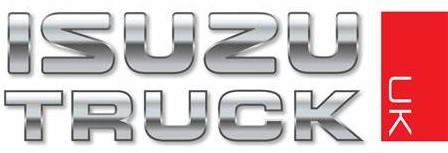Isuzu D-Max Pickup Truck Towing
When you come to purchase your next pickup truck, you should consider the towing capacities of each pickup truck, especially if you work in outdoor applications such as agriculture, where you will need to transport heavy materials.
The towing capacities for the Isuzu D-Max Utility, DL20, DL40, and V-Cross can vary depending on the model and the specific configuration.
Here are the towing capacities for each of these models based on their latest specifications:
Isuzu D-Max Utility: The Isuzu D-Max Utility has a maximum towing capacity of up to 3,500 kg (7,716 lbs) with a braked trailer and a maximum tow ball download of 350 kg. The towing capacity is possible with a properly equipped D-Max Utility and assuming the weight of the trailer is properly balanced.
Isuzu D-Max DL20: The Isuzu D-Max DL20 has a maximum towing capacity of up to 3,500 kg (7,716 lbs) with a braked trailer and a maximum tow ball download of 350 kg. This towing capacity is possible with a properly equipped D-Max DL20 and assuming the weight of the trailer is properly balanced.
Isuzu D-Max DL40: The Isuzu D-Max DL40 has a maximum towing capacity of up to 3,500 kg (7,716 lbs) with a braked trailer and a maximum tow ball download of 350 kg. This towing capacity is possible with a properly equipped D-Max DL40 and assuming the weight of the trailer is properly balanced.
Isuzu D-Max V-Cross: The Isuzu D-Max V-Cross has a maximum towing capacity of up to 3,500 kg (7,716 lbs) with a braked trailer and a maximum tow ball download of 350 kg. This towing capacity is possible with a properly equipped D-Max V-Cross and assuming the weight of the trailer is properly balanced.
It's important to note that the maximum towing capacity is just one factor to consider when selecting a vehicle for towing. Other factors to consider include the weight of the trailer, the weight distribution, and the capacity of the vehicle's hitch and suspension system. It's important to consult the vehicle's owner's manual and follow the manufacturer's recommendations for safe and effective towing.
UK towing regulations
In the UK, there are specific regulations that apply to towing, which are designed to ensure that towing is done safely and responsibly. Here are some of the key regulations that apply to towing in the UK:
Towing capacity: The towing capacity of your vehicle must not be exceeded. This information can usually be found in your vehicle's owner's manual or on the manufacturer's website.
Driving license: If you passed your driving test on or after 1 January 1997, you may need to take an additional driving test to tow a trailer with a maximum weight of over 750kg. If you passed your driving test before 1 January 1997, you are generally permitted to tow a trailer with a maximum weight of up to 8,250 kg.
Trailer weight: The maximum weight of the trailer that you can tow is determined by the towing vehicle's weight, its towing capacity, and the type of driving license you hold.
Brakes: If the trailer you are towing weighs more than 750 kg, it must be fitted with brakes that can be operated from the towing vehicle.
Towing mirrors: If the trailer you are towing is wider than the rear of the towing vehicle, you must fit suitable towing mirrors.
Speed limits: There are specific speed limits that apply when towing a trailer. On a motorway, the speed limit is generally 60 mph, and on other roads, it is generally 50 mph.
It's important to note that these regulations can vary depending on the specific circumstances of your towing situation, and it's important to consult the official guidance from the UK government to ensure that you are complying with all relevant regulations.
Additionally, you should ensure that you have the proper insurance coverage for towing, and that your towing equipment is properly maintained and in good condition.
If you would like to take a test drive of the Isuzu D-Max, please get in touch with Warrington Isuzu and we would be happy to arrange this for you.




